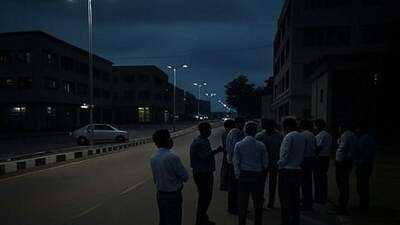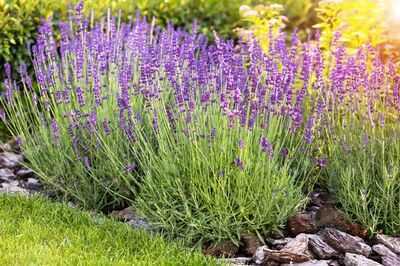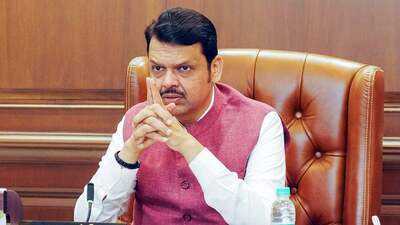
“पितृदोषसमायुक्तो न सुखं लभते नरः।
सर्वत्र विघ्नसंयुक्तं तस्मात् पितृपूजनम्॥”
(One who carries Pitru Dosha finds obstacles at every step. Therefore, honoring the ancestors is essential.)
Every family carries stories, blessings, and duties that do not end with the passing of ancestors. In Hindu belief, when certain responsibilities remain unfinished or when forefathers depart without proper rites, their energy does not dissolve peacefully. Instead, it lingers in the lineage as Pitru Dosha. This karmic imprint is described in Garuda Purana and other scriptures as one of the strongest influences on a person’s destiny.
Among its many effects, two stand out clearly. Marriage, which should be a union of joy, faces constant delays. Families, which should be shelters of peace, often fall into endless disputes. Both are seen not as coincidences but as signals that the ancestral flow needs recognition and healing.
Why ancestors shape the fate of marriage
 Marriage is not simply a personal choice or social arrangement. It is considered a sacred merging of two family lines. When the energy of one family carries unresolved ancestral debts, the soul path of the descendant faces obstacles. Astrologers often find that individuals with Pitru Dosha face unexplained delays in marriage even when all external conditions seem favorable. The ancient understanding is simple. Until the ancestors are at peace, new unions struggle to take shape.
Marriage is not simply a personal choice or social arrangement. It is considered a sacred merging of two family lines. When the energy of one family carries unresolved ancestral debts, the soul path of the descendant faces obstacles. Astrologers often find that individuals with Pitru Dosha face unexplained delays in marriage even when all external conditions seem favorable. The ancient understanding is simple. Until the ancestors are at peace, new unions struggle to take shape.
When family peace turns into conflict
 Shocking Signs You Might Be a Terrible Parent Without Even Realizing It Another place where Pitru Dosha shows its presence is within the family home. Quarrels that arise without reason, property fights that refuse to end, or constant separation among siblings are often attributed to this ancestral imbalance. The departed, when unsatisfied, create restlessness in the living. The family atmosphere becomes heavy, and relationships lose their warmth. Instead of harmony, arguments take root and repeat across generations until someone chooses to address the root cause.
Shocking Signs You Might Be a Terrible Parent Without Even Realizing It Another place where Pitru Dosha shows its presence is within the family home. Quarrels that arise without reason, property fights that refuse to end, or constant separation among siblings are often attributed to this ancestral imbalance. The departed, when unsatisfied, create restlessness in the living. The family atmosphere becomes heavy, and relationships lose their warmth. Instead of harmony, arguments take root and repeat across generations until someone chooses to address the root cause.
How the stars reflect ancestral unrest
 September 9, 2025: A rare alignment of numerology, astrology, and soul work. Step in. Astrology offers a lens to understand the presence of Pitru Dosha. The Sun, symbol of father and lineage, when afflicted by malefic planets, indicates ancestral dissatisfaction. Rahu and Ketu, known as karmic planets, deepen this imbalance. Saturn in certain positions intensifies delays and disputes. For instance, an afflicted Sun in the ninth house or Rahu in the seventh house are often read as signs of Pitru Dosha. These placements do not curse but reveal that karmic balance has yet to be restored.
September 9, 2025: A rare alignment of numerology, astrology, and soul work. Step in. Astrology offers a lens to understand the presence of Pitru Dosha. The Sun, symbol of father and lineage, when afflicted by malefic planets, indicates ancestral dissatisfaction. Rahu and Ketu, known as karmic planets, deepen this imbalance. Saturn in certain positions intensifies delays and disputes. For instance, an afflicted Sun in the ninth house or Rahu in the seventh house are often read as signs of Pitru Dosha. These placements do not curse but reveal that karmic balance has yet to be restored.
The spiritual reality behind the DoshaBeyond planetary positions, Pitru Dosha is about unfinished energy. Ancestors who pass away with unfulfilled desires or without proper rites remain bound in a subtle plane. Their presence influences emotions and relationships in the family. Marriage delays and disputes become their way of asking the living to complete forgotten duties. Far from a punishment, it is a reminder that no soul truly walks alone. The past always travels with us until acknowledged.
Signs that point toward ancestral imbalance
 Arranged marriages were seen as the gold standard in Indian society Certain patterns are seen as strong signals of Pitru Dosha. These include
Arranged marriages were seen as the gold standard in Indian society Certain patterns are seen as strong signals of Pitru Dosha. These include
Why Pitru Paksha becomes a turning point
 Actions given with devotion outweigh ostentatious gestures. The fortnight of Pitru Paksha, observed once a year, is seen as the most sacred time to connect with ancestors. Rituals such as tarpan and pind daan are performed to offer food and prayers to departed souls. Scriptures say that when ancestors are satisfied, they release their descendants from karmic weight. Many families believe that performing these rites brings peace at home and removes the invisible blocks that delay marriage or fuel conflicts.
Actions given with devotion outweigh ostentatious gestures. The fortnight of Pitru Paksha, observed once a year, is seen as the most sacred time to connect with ancestors. Rituals such as tarpan and pind daan are performed to offer food and prayers to departed souls. Scriptures say that when ancestors are satisfied, they release their descendants from karmic weight. Many families believe that performing these rites brings peace at home and removes the invisible blocks that delay marriage or fuel conflicts.
What remedies bring balance
 Worn and time-softened, this ancient scripture carries more than ink—it holds generations of belief, reflection, and spiritual inquiry. Each word etched into its pages speaks of a time when faith was handwritten, and understanding came through stillness and study. The remedies for Pitru Dosha are not only rituals but acts of remembrance and gratitude. Scriptures suggest:
Worn and time-softened, this ancient scripture carries more than ink—it holds generations of belief, reflection, and spiritual inquiry. Each word etched into its pages speaks of a time when faith was handwritten, and understanding came through stillness and study. The remedies for Pitru Dosha are not only rituals but acts of remembrance and gratitude. Scriptures suggest:
When Ancestors Become Our Silent GuidesPitru Dosha is not a curse but a reminder of connection. It is the voice of our ancestors telling us that the story of our family is still unfinished. The delays we face and the disputes we endure are not punishments but gentle calls to heal the roots before the branches can truly bloom.
When we honor our ancestors, we do more than perform a ritual. We release their unspoken burdens, we restore the flow of blessings, and we open the way for harmony in our own lives. By remembering them, we are not only setting them free, we are giving ourselves and our children the gift of peace.
So ask yourself this: if the strength of a tree depends on the nourishment of its roots, how can we expect our own lives to flourish if we forget the very roots that gave us life?
-
Reasons Nottingham Forest sacked Nuno Espirito Santo as new signing snubbed

-
Mumbai: Power Outage In Parel Disrupts Hospitals; Electricity Restored Within 35 Minutes

-
Gardens will never be short of lavender if you do one five-minute task now

-
Hollyoaks Autumn trailer exposed from Joel's shock return to Cleo and Dodger's kiss

-
Maharashtra Reserves Skill Dept Research & Consultancy Projects For Indian Firms
